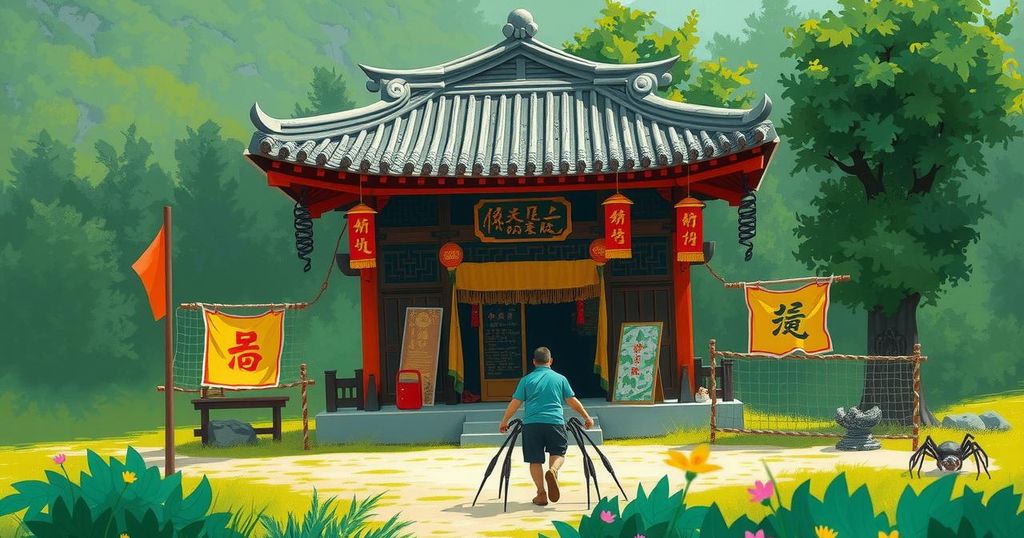Spider Fighting in Chiba Town Gains ‘Heritage for Future’ Status

Spider fighting in Futtsu, Chiba, has been recognized as a ‘Heritage for the Future’ by the NFUAJ. This tradition, rooted in the Edo Period, involves fights between male Carrhotus xanthogramma spiders and aims to preserve cultural heritage. Revived in 1998, it has grown significantly and emphasizes community involvement and youth engagement. Spider fighting is the second entry from Chiba on the Heritage list, reflecting efforts to maintain local traditions.
Spider fighting, a cultural competition involving spiders, has received recognition as a ‘Heritage for the Future’ by the National Federation of UNESCO Associations in Japan (NFUAJ). This event, held in Futtsu, Chiba Prefecture, has roots dating back to the Edo Period and is characterized by fights between male Carrhotus xanthogramma spiders, commonly known as ‘funchi.’ The annual match takes place on May 4 at the Futtsu Yasakajinja shrine, marking its 24th occurrence this year.
Although this tradition faced decline in the 1990s, local enthusiasts revived it in 1998, creating the first ‘yokozuna-deciding match’ under the eaves of a private house. The event has since grown, now headquartered at the Futtsu Yasakajinja shrine from 2009 onward, with efforts focused on sustaining this cultural asset for future generations. Last year, approximately 150 participants, including the local mayor, attended this match, drawing around 1,000 spectators.
The association behind the event aimed to establish spider fighting as an official cultural property but faced challenges due to limited documentation. They eventually sought inscription on the NFUAJ Heritage list, emphasizing collaboration with local communities and involvement with youth to preserve this unique tradition. Their initiative garnered positive feedback from evaluators, noting their commitment to revitalizing the community’s cultural heritage.
This inscription highlights the broader significance of civil activities in preserving traditional practices and natural environments, with spider fighting being only the second entry from Chiba Prefecture on the Heritage list, joining the Konbukuro-ike Pond project aimed at promoting sustainable forest growth.
The recognition of spider fighting as a ‘Heritage for the Future’ underscores its historical significance and the community’s dedication to cultural preservation. Through revival efforts and educational initiatives, the Futtsu community aims to sustain this unique tradition while engaging younger generations. As cultural practices evolve, such measures are essential for maintaining local heritage amidst changing societal interests.
Original Source: www.asahi.com






